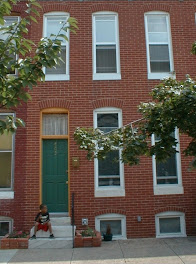The Consumer Credit Counseling Service (CCCS)of Maryland and Delaware put out an important press release last week about reverse mortgages. NHS of Baltimore thought we should share it with you.
BALTIMORE) A reverse mortgage allows you to borrow money against your home while you remain living there and without making payments on the loan. In the past year, this type of home loan has gained increasing popularity with older adults. Before you apply for one, make sure you understand your rights and responsibilities and how reverse mortgages work.
Do You Qualify? In order to qualify for a reverse mortgage you and your spouse must be at least 62 years of age, and you must have equity in your home. Generally you can qualify for one regardless of your current income level or credit score.
Reverse Mortgage Basics. A lender loans you money based on the value of your home, the amount of equity you hold in it, and your age at the time of application. The money you receive can be paid to you in monthly installments, as a lump sum, or as a line of credit, whichever works best for you. No matter how the loan monies are paid out, you generally don’t have to repay them until you die, permanently move away, or sell your home. If you decide to sell your home, you are allowed to keep any proceeds from the sale in excess of what you owe to the lender.
Loan Amounts. The amount of money that you can obtain depends on the specific reverse mortgage plan or program you choose. It also is affected by the type of cash advances you require. Some reverse mortgages cost a lot more than others, and this may restrict the amount of money you will ultimately receive. Generally, the older you are and the more your home is worth, the more money you can get. The interest rates and closing costs for home loans in your local area may also affect the specific dollar amount available to you.
Closing Costs and Finance Fees. The costs related to obtaining some types of reverse mortgages may be high. However, you can use the money that you receive from the loan to pay for origination or closing fees. This is known as “financing” the loan costs. Under this plan, the costs are added to your loan balance, and you repay them with interest at the end of the loan.
Your Role as a Home Owner. Under a reverse mortgage, you retain the title to your home. As before, you are responsible for paying property taxes and home insurance and for making necessary property repairs. When the loan comes due, you or your heirs must repay the loan balance.
The above press release was written by CCCS of Maryland and Delaware. If you would like to learn more about reverse mortgages and whether you should seek one, you may contact NHS of Baltimore and set up a free appointment with one of our housing counselors. 410-327-1200.
skip to main |
skip to sidebar
+for+blog.jpg)
.JPG)
.jpg)
Baltimore boy enjoys the day on his front step

.JPG)
Potential homeowners attend our Homebuyer Education Class
.JPG)
Executive Director, Felix Torres Colon accepts governor's committment to excellence award

Board Chair, Ron Huffman helps seal the foundation of homeownership
Helping you endure these trying times by offering vital tips and information about homeownership and financial fitness.
FACING FORECLOSURE?
We can help. NHS of Baltimore is one of the leading foreclosure prevention nonprofits in the Baltimore region. We offer HUD certified counseling, loan modification mediation and refinancing. Get help today! 410-327-1200
NHS of Baltimore Website
Take our Homebuyer Education Class Online!
+for+blog.jpg)
- Neighborhood Housing Services of Baltimore Inc.
- For more information on our homebuyer education classes, foreclosure prevention, or to donate, please visit our website or call, 410-327-1200.
Blog Archive
-
▼
2009
(98)
-
▼
August
(9)
- BGE Offers New Energy Efficiency Incentives for Lo...
- Right of Rescission a Little Known Treasure
- Time Running Out for the $8,000 Homebuyer Tax Credit
- First Time Homebuyers Seeking FHA Backed Mortgages
- Counselors Reaching More Struggling Homeowners tha...
- How Can You Make a Difference in Your Community an...
- NHS of Baltimore Preventing Foreclosure One Family...
- Press Release: What You Should Know About Reverse ...
- Making Your Home a Safe and Friendly Place for You...
-
▼
August
(9)
.jpg)
Baltimore boy enjoys the day on his front step

Potential homeowners attend our Homebuyer Education Class
Executive Director, Felix Torres Colon accepts governor's committment to excellence award
Board Chair, Ron Huffman helps seal the foundation of homeownership



